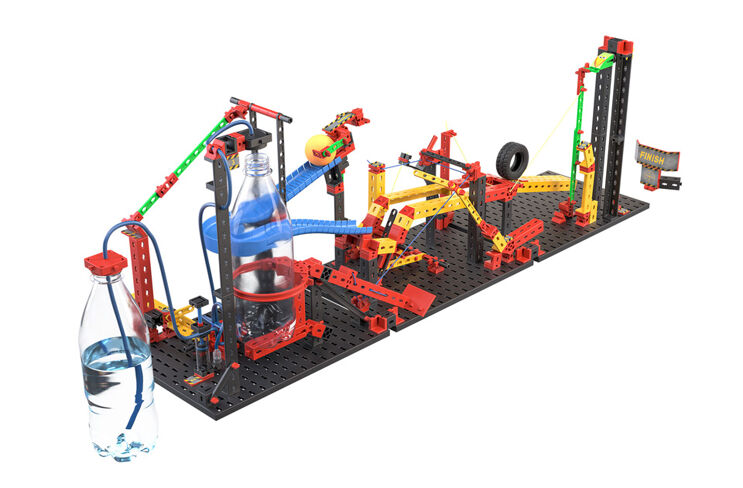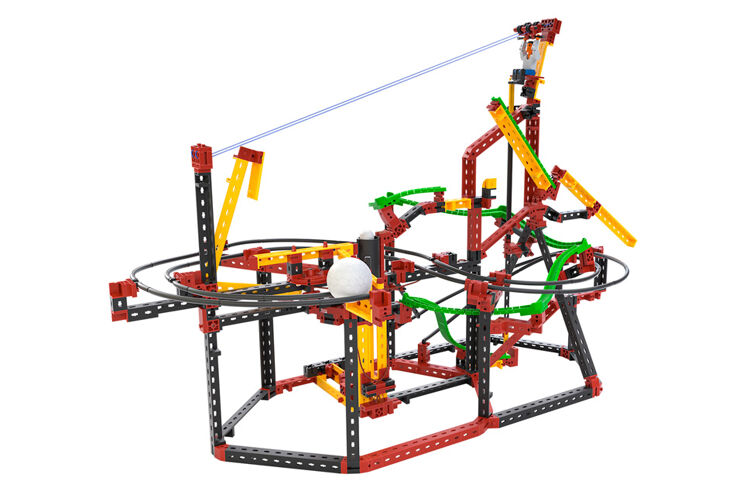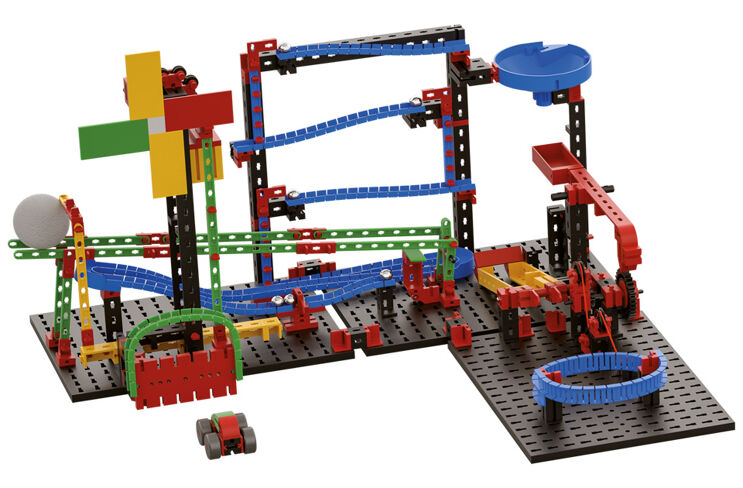- Home
- Toys
- E-Learning
- Chain reactions
Now it's getting action-packed! With the Crazy Reactions construction set for children aged 8 and up, you can build three different chain reactions with exciting surprise effects. Give the starting signal and playfully discover the function of the cable pull, lever and gear. That's not enough? The chain reactions can be wonderfully expanded with everyday objects and encourage creative building.
In addition, the chain reaction can be combined with the building sets Funny Machines and Funny Reactions.

With the new, colourful chain reaction game for children aged 8 and up, just a little push is enough to trigger action-packed and exciting reactions. With the help of the building instructions, three different chain reaction models can be built. But the fun doesn't stop there. Get creative yourself: design and build the longest and most exciting chain reactions possible. In addition to fischertechnik components, other objects can of course also be built into the constructions - so the children's room quickly becomes a big chain reaction arena. A fun, colourful starter set for young builders!

